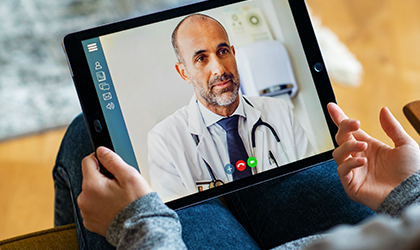Africa’s Struggle for Access to Essential Medicines

Access to essential medicines is a fundamental human right. Yet, across Africa, millions of people still struggle to obtain basic drugs needed to treat malaria, HIV, diabetes, hypertension, and other life-threatening conditions. According to the World Health Organization (WHO), nearly half of Africa’s population lacks regular access to essential medicines, a crisis that worsens disease outcomes and increases preventable deaths. Understanding the causes, impact, and possible solutions is critical to building a healthier future for the continent.
Causes of Limited Access to Essential Medicines in Africa
1. Weak Supply Chains
Many African countries suffer from inefficient drug distribution networks. Rural and remote communities are often the hardest hit, as medicines fail to reach them due to poor road infrastructure, lack of storage facilities, and weak logistics systems.
2. High Costs and Affordability
Essential medicines remain unaffordable for millions. Out-of-pocket spending on healthcare in Africa is among the highest in the world, and low-income families often face the painful choice between buying food or buying medicine.
3. Dependence on Imports
Africa imports over 70% of its medicines, making the region highly vulnerable to global supply chain disruptions, currency fluctuations, and price increases. Local pharmaceutical production remains underdeveloped, limiting affordability and accessibility.
4. Policy and Regulatory Gaps
Weak healthcare policies and fragmented regulatory frameworks often allow counterfeit drugs to flood markets while genuine medicines remain scarce. This lack of effective governance undermines trust in health systems.
5. Brain Drain of Healthcare Professionals
Africa continues to lose skilled pharmacists and healthcare workers to migration, leaving behind a shortage of trained professionals who can prescribe, dispense, and manage essential medicines effectively.
Impact of Poor Access to Essential Medicines
Rising Mortality Rates
Lack of essential medicines contributes significantly to preventable deaths. For instance, malaria kills over 600,000 Africans each year, despite being treatable with affordable medicines.
Worsening Chronic Illnesses
Patients with chronic conditions like hypertension, diabetes, and asthma suffer complications when medicines are unavailable or unaffordable, increasing healthcare costs in the long run.
Economic Burden
Poor access to medicines reduces workforce productivity. Sick individuals cannot work or attend school, trapping families and communities in cycles of poverty.
Inequality in Healthcare
Urban residents are more likely to access essential medicines than rural populations, widening the inequality gap in healthcare delivery across Africa.
Solutions to Improve Access to Essential Medicines
1. Strengthening Local Pharmaceutical Manufacturing
Governments and private investors must prioritize local drug production. Expanding Africa’s pharmaceutical industry can reduce reliance on imports, lower costs, and ensure sustainable medicine supply.
2. Universal Health Coverage (UHC) and Insurance
Introducing or expanding health insurance schemes can protect citizens from catastrophic out-of-pocket expenses while improving access to affordable medicines.
3. Digital Health and E-Pharmacy Platforms
Technology-driven solutions like e-pharmacies, mobile health apps, and digital prescription systems can bridge the access gap, especially in rural areas. Nigeria, Kenya, and South Africa are already pioneering such innovations.
4. Stronger Regulation and Anti-Counterfeit Measures
Governments must enforce stricter policies against counterfeit medicines and strengthen procurement systems to ensure only quality, affordable drugs reach communities.
5. International Partnerships
Collaboration with global health organizations, donor agencies, and the private sector can bring financial and technical support to strengthen Africa’s medicine supply chains.
Conclusion
Africa’s struggle for access to essential medicines is a pressing public health and economic challenge. Without urgent reforms in supply chains, affordability, regulation, and local drug production, millions will continue to suffer from preventable diseases. However, with political will, investment in healthcare innovation, and international collaboration, the continent can ensure that essential medicines are no longer a luxury but a guaranteed right for every citizen.
Written by Fawzi Rufai, Medically Reviewed by Sesan Kareem



